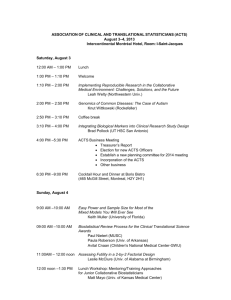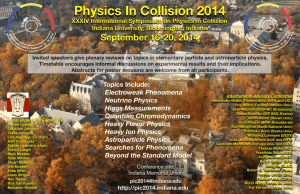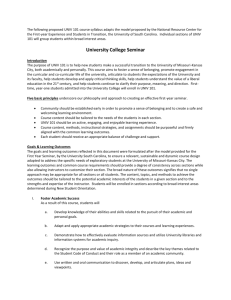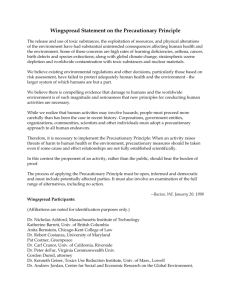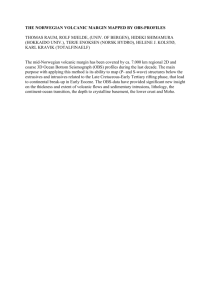3 rd International Workshop on
advertisement
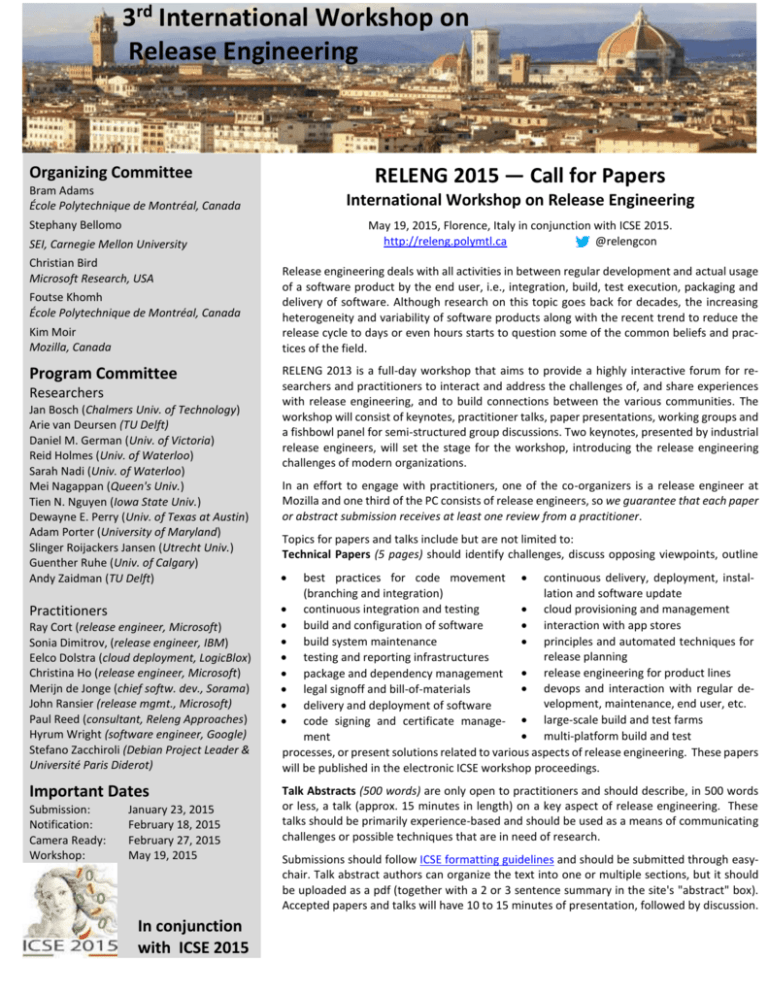
3rd International Workshop on Release Engineering Organizing Committee RELENG 2015 — Call for Papers Bram Adams École Polytechnique de Montréal, Canada International Workshop on Release Engineering Stephany Bellomo May 19, 2015, Florence, Italy in conjunction with ICSE 2015. http://releng.polymtl.ca @relengcon SEI, Carnegie Mellon University Christian Bird Microsoft Research, USA Foutse Khomh École Polytechnique de Montréal, Canada Kim Moir Mozilla, Canada Program Committee Researchers Jan Bosch (Chalmers Univ. of Technology) Arie van Deursen (TU Delft) Daniel M. German (Univ. of Victoria) Reid Holmes (Univ. of Waterloo) Sarah Nadi (Univ. of Waterloo) Mei Nagappan (Queen's Univ.) Tien N. Nguyen (Iowa State Univ.) Dewayne E. Perry (Univ. of Texas at Austin) Adam Porter (University of Maryland) Slinger Roijackers Jansen (Utrecht Univ.) Guenther Ruhe (Univ. of Calgary) Andy Zaidman (TU Delft) Practitioners Ray Cort (release engineer, Microsoft) Sonia Dimitrov, (release engineer, IBM) Eelco Dolstra (cloud deployment, LogicBlox) Christina Ho (release engineer, Microsoft) Merijn de Jonge (chief softw. dev., Sorama) John Ransier (release mgmt., Microsoft) Paul Reed (consultant, Releng Approaches) Hyrum Wright (software engineer, Google) Stefano Zacchiroli (Debian Project Leader & Université Paris Diderot) Important Dates Submission: Notification: Camera Ready: Workshop: January 23, 2015 February 18, 2015 February 27, 2015 May 19, 2015 In conjunction with ICSE 2015 Release engineering deals with all activities in between regular development and actual usage of a software product by the end user, i.e., integration, build, test execution, packaging and delivery of software. Although research on this topic goes back for decades, the increasing heterogeneity and variability of software products along with the recent trend to reduce the release cycle to days or even hours starts to question some of the common beliefs and practices of the field. RELENG 2013 is a full-day workshop that aims to provide a highly interactive forum for researchers and practitioners to interact and address the challenges of, and share experiences with release engineering, and to build connections between the various communities. The workshop will consist of keynotes, practitioner talks, paper presentations, working groups and a fishbowl panel for semi-structured group discussions. Two keynotes, presented by industrial release engineers, will set the stage for the workshop, introducing the release engineering challenges of modern organizations. In an effort to engage with practitioners, one of the co-organizers is a release engineer at Mozilla and one third of the PC consists of release engineers, so we guarantee that each paper or abstract submission receives at least one review from a practitioner. Topics for papers and talks include but are not limited to: Technical Papers (5 pages) should identify challenges, discuss opposing viewpoints, outline best practices for code movement continuous delivery, deployment, instal(branching and integration) lation and software update continuous integration and testing cloud provisioning and management build and configuration of software interaction with app stores build system maintenance principles and automated techniques for release planning testing and reporting infrastructures release engineering for product lines package and dependency management devops and interaction with regular de legal signoff and bill-of-materials velopment, maintenance, end user, etc. delivery and deployment of software code signing and certificate manage- large-scale build and test farms multi-platform build and test ment processes, or present solutions related to various aspects of release engineering. These papers will be published in the electronic ICSE workshop proceedings. Talk Abstracts (500 words) are only open to practitioners and should describe, in 500 words or less, a talk (approx. 15 minutes in length) on a key aspect of release engineering. These talks should be primarily experience-based and should be used as a means of communicating challenges or possible techniques that are in need of research. Submissions should follow ICSE formatting guidelines and should be submitted through easychair. Talk abstract authors can organize the text into one or multiple sections, but it should be uploaded as a pdf (together with a 2 or 3 sentence summary in the site's "abstract" box). Accepted papers and talks will have 10 to 15 minutes of presentation, followed by discussion.
